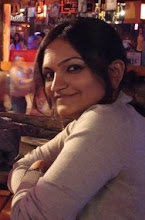Week 7, Day Two
It fell three feet to the ground. Again. The tail wriggled and momentarily stopped me from bending down to pick it up.
It was supposed to be dead.
I gave it another minute, but the tadpole lay lifeless in a tiny pool of water on the floor. My heart sank all over again and I picked it up gingerly. I scooped it up on the foil and lay it stomach-down on my palm once again. The beady black eyes were always motionless against the equally black, shiny body. But the nostrils don't flare and no suction on the ventral surface, the tailspin a far cry. I rubbed the pad of my forefinger against the bulgy part of its body, the slimy surface soft, pudgy. Carefully. As if it were still alive.
Less than two months ago, they were barely a centimeter in length. You could just make out the pin-sized head and wriggly tail. Three weeks ago, they'd all grown to more than twice that length, lateral bulk now added. A week ago, they were five to seven times that length; eyes, nostrils and suction cup-like mouths obvious. I got curious, and after handling them during wadi sampling, tank transfers and set-up construction, I got accustomed to the wriggling on my palm. So I scooped one up from the storage tank to have a closer look. I nabbed a rather feisty one because he jumped right off my palm onto the floor over three feet down. Oops. Took me long enough to find something flat yet thin enough to slide between its belly and the floor and once back on my palm, it wriggled and then curled into a jet black oval, motionless. A hint of moisture from the spray bottle, and it sprang back to life wriggling in the newly deepened pool. The suction began as it swam from crevice to crevice in my cupped hand. I opened my palm wide, straight, and then watched the eyes, the cheeks underneath bloating and sinking quickly with gulps of air. I lowered my finger and barely touched the surface. Satisfied, but more wary of the stress that may have been invoked with its high jump, I lifted my eyes off my palm, hunting for a beaker in which to deposit the creature.
I grabbed one and looked down, and there was no movement. No suction, no makeshift cheeks. Oh god.
I touch the sensitive tail hoping for a reaction. Nothing. I touch the head, spray some water and dunk it into the beaker, sitting still for a minute. Nothing. Nothing. I lift it out of the beaker and onto my palm, remembering the two dead tadpoles from the wadi samples that had to be dunked into the drain. I can't throw this creature there. I killed a tadpole. I killed the tadpole.
I must have killed a dozen insects every few weeks unknowingly. This one dead tadpole is making me more miserable than all those dead insects in two decades. Since I couldn't bare the dark, smelly burial ground, I dunk it into the storage tank instead, half hoping it springs back to life. Nada.
I follow it as it sinks to the bottom like a wisp of snow, my face wrinkled.
Two minutes later it joins the other milling tadpoles.
